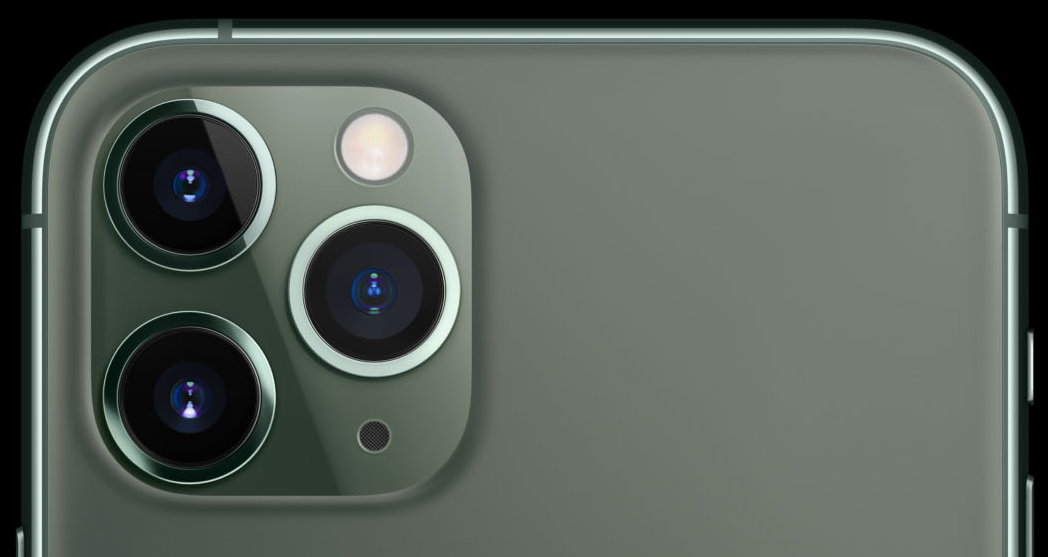Krebs - Apple Explains Mysterious iPhone 11 Location Requests
KrebsOnSecurity ran a story this week that puzzled over Apple‘s response to inquiries about a potential privacy leak in its new iPhone 11 line, in which the devices appear to intermittently seek the user’s location even when all applications and system services are individually set never to request this data. Today, Apple disclosed that this behavior is tied to the inclusion of a new short-range technology that lets iPhone 11 users share files locally with other nearby phones that support this feature, and that a future version of its mobile operating system will allow users to disable it.

I published Tuesday’s story mainly because Apple’s initial and somewhat dismissive response — that this was expected behavior and not a bug — was at odds with its own privacy policy and with its recent commercials stating that customers should be in full control over what they share via their phones and what their phones share about them.
But in a statement provided today, Apple said the location beaconing I documented in a video was related to new Ultra Wideband technology that “provides spatial awareness allowing iPhone to understand its position relative to other Ultra Wideband enabled devices (i.e. all new iPhone 11s, including the Pro and Pro Max).
Ultra-wideband (a.k.a UWB) is a radio technology that uses a very low energy level for short-range, high-bandwidth communications of a large portion of the radio spectrum without interfering with more conventional transmissions.
“So users can do things like share a file with someone using AirDrop simply by pointing at another user’s iPhone,” Apple’s statement reads. The company further explained that the location information indicator (a small, upward-facing arrow to the left of the battery icon) appears because the device periodically checks to see whether it is being used in a handful of countries for which Apple hasn’t yet received approval to deploy Ultra Wideband.
“Ultra Wideband technology is an industry standard technology and is subject to international regulatory requirements that require it to be turned off in certain locations,” the statement continues. “iOS uses Location Services to help determine if iPhone is in these prohibited locations in order to disable Ultra Wideband and comply with regulations. The management of Ultrawide Band compliance and its use of location data is done entirely on the device and Apple is not collecting user location data.”
Apple’s privacy policy says users can disable all apps and system services that query the user’s location all at once by toggling the main “Location Services” option to “off.” Alternatively, it says, users can achieve the same results by individually turning off all System Services that use location in the iPhone settings.
What prompted my initial inquiry to Apple about this on Nov. 13 was that the location services icon on the iPhone 11 would reappear every few minutes even though all of the device’s individual location services had been disabled.
“It is expected behavior that the Location Services icon appears in the status bar when Location Services is enabled,” Apple stated in their initial response. “The icon appears for system services that do not have a switch in Settings” [emphasis added].
Now we know more about at least one of those services. Apple says it plans to include the option of a dedicated toggle in System Services to disable the UWB activity in an upcoming update of its iOS operating system, although it didn’t specify when that option might be available.
The one head-scratcher remaining is that the new iPhone seems to check whether it’s in a country that allows UWB fairly frequently, even though the list of countries where this feature is not yet permitted is fairly small, and includes Argentina, Indonesia and Paraguay. A complete list of countries where iPhones can use UWB is here. The principal remaining concern may be that these periodic checks unnecessarily drain the iPhone 11’s battery.
It is never my intention to create alarm where none should exist; there are far too many real threats to security and privacy that deserve greater public attention and scrutiny from the news media. However, Apple does itself and its users no favors when it takes weeks to respond (or not, as my colleague Zack Whittaker at TechCrunch discovered) to legitimate privacy concerns, and then does so in a way that only generates more questions.
from Krebs on Security https://krebsonsecurity.com/2019/12/apple-explains-mysterious-iphone-11-location-requests/
Comments
Post a Comment